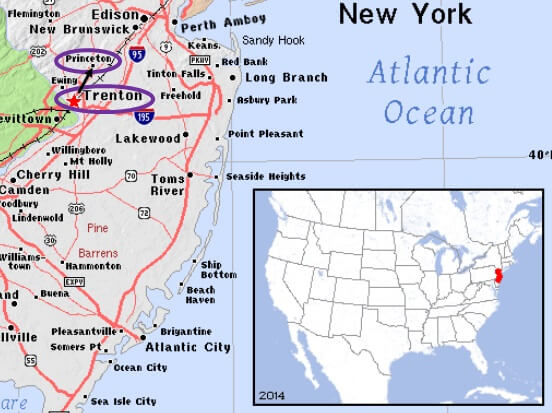 Stories of Great Americans for Little Americans
Stories of Great Americans
Stories of Great Americans for Little Americans
Stories of Great Americans


 Stories of Great Americans for Little Americans
Stories of Great Americans
Stories of Great Americans for Little Americans
Stories of Great Americans

Study the lesson for one week.
Over the week:
In the story, Washington sneaks around Cornwallis in Trenton and attacks the additional British soldiers marching from Princeton to help Cornwallis.
See below a map showing part of New Jersey.
Trace Washington's route from Trenton to Princeton.

Activity 1: Narrate the Story
Activity 2: Model the Story
Using Legos, blocks, or figurines, model the landforms, the troops, and the troop movements from the story:
Activity 4: Study the Story Picture
Study the picture below of Washington battling Cornwallis' reinforcements at Princeton. Zoom in to see the details and find the following:
In the center of the painting wearing blue and gold, American general, Hugh Mercer, holds a sword defiantly over his head as the British strike at him. He is mortally wounded in the battle.
